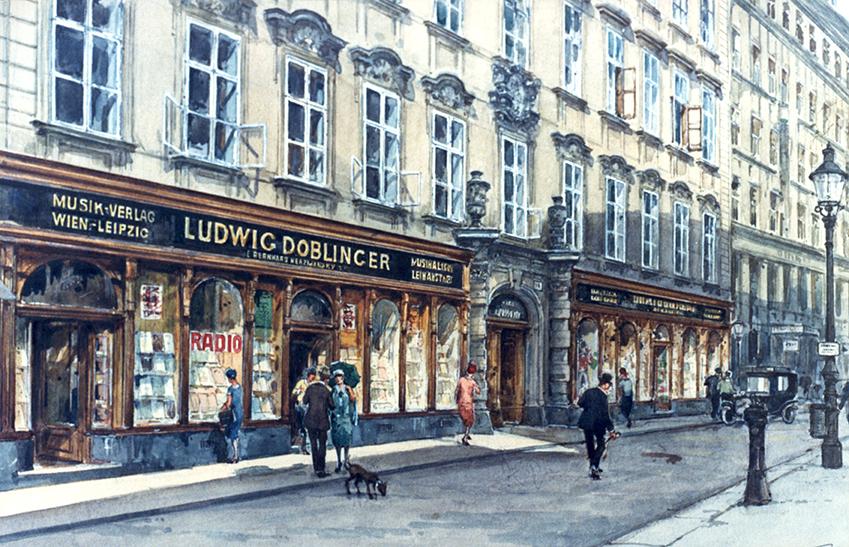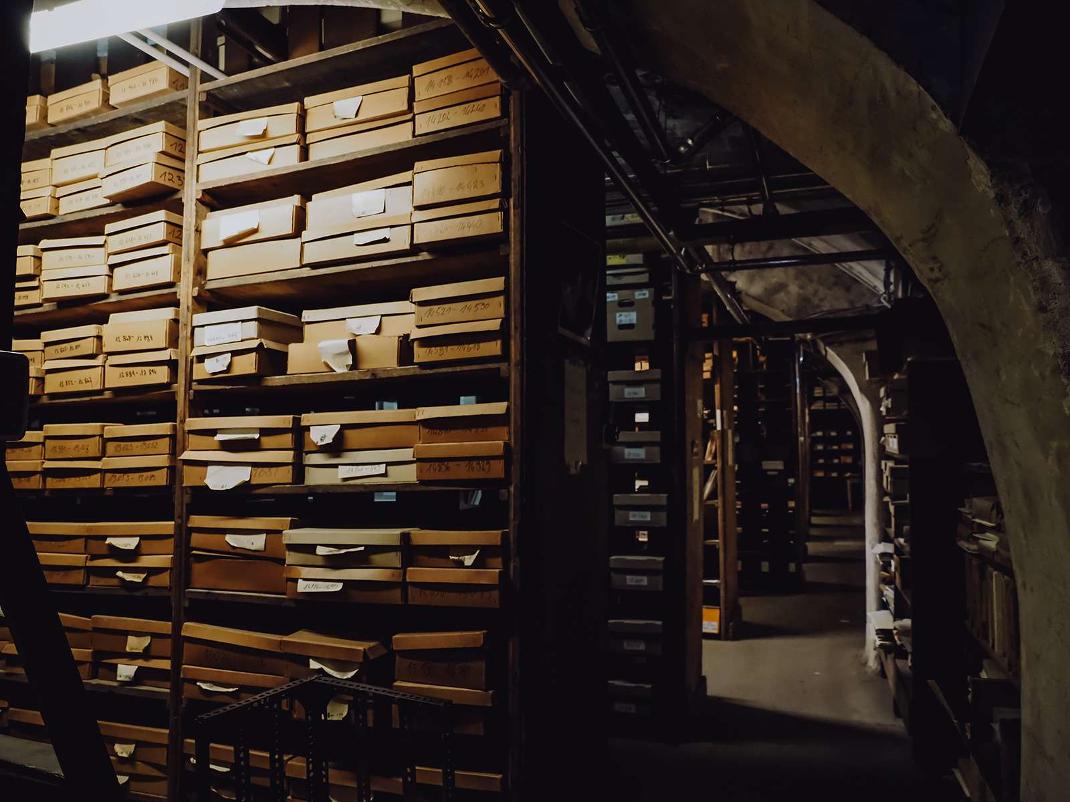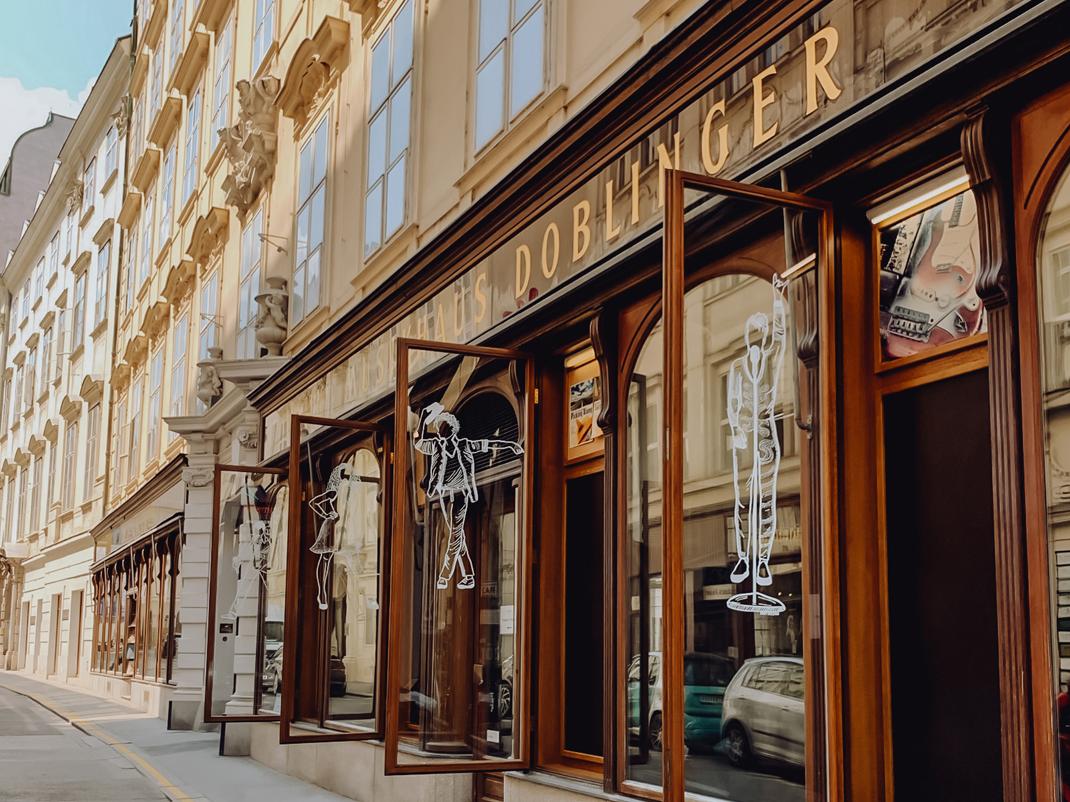Historical
"The Doblinger" - in Vienna since 1817
Vienna, 1817: Ludwig van Beethoven receives a commission from London that will lead to the composition of the 9th Symphony. Franz Schubert writes the immortal "To Music" along with many other songs. The Society of Friends of Music lays the foundation for today's University of Music and Performing Arts with a singing school. And: The story also begins of that indispensable music shop which, under the name of its second owner, which it was to retain, has long been known as "der Doblinger" in Dorotheergasse far beyond the borders of the city and the country - as a supporting pillar in the flourishing musical life.


The business remained "Der Doblinger" even after the next major milestone in the company's history: its purchase by Bernhard Herzmansky in 1876. Ludwig Doblinger wanted to retire - and the 24-year-old Herzmansky, who had come to Vienna from Bohemia with his parents as a child, is said by oral tradition to have had "either an inn or a music shop" in mind to invest his father's inheritance profitably. Herzmansky kept the name of the previous owner, which had long since become a household word, and only added his own name in brackets - and put the company on a second footing by founding a publishing house: subsequently he was to play an active role in shaping musical life in a hitherto unimagined way: Carl Michael Ziehrer and Franz Lehár, Ernst von Dohnányi, Carl Goldmark, Anton Bruckner and Gustav Mahler are only a few of the prominent composers whose works were published and also sold in the same house. A success story that lasted beyond the First World War and was continued in 1921 by Bernhard Herzmansky Jr. after the death of his father. However, the "Anschluss" of Austria to Hitler's Germany was a bitter blow: Herzmansky was arrested only a few days later, served three months in Vienna, then had to endure another three months in the Dachau concentration camp and had to withdraw from his company. After the war, however, he was able to pick up where he had left off - in his ceaseless endeavour to remain at the cutting edge of sales and production, and to offer and promote both attractive and artistically valuable products in equal measure.
With Christian Wolff, a grandson of Herzmansky senior, and Helmuth Pany, a great-grandson, the family history of the company continued in this spirit until the great-great-grandson Peter Pany, who from 2009 onwards, as owner and managing director, faced the ever new challenges of the fundamentally changing world of music printing. In 2021, Musikhaus Doblinger was separated from Musikverlag Doblinger and is now run as an independent company under the management of Andreas Lanner.
Extensive modernisation continues to ensure: at Doblinger, music lovers can find one of the most extensive ranges of sheet music in Europe, with sheet music from all over the world, both in person in the shop and in the user-friendly web shop - and can both browse the range themselves and benefit from the advice of the dedicated and highly trained specialists.
